
Norah Jones is an American singer, songwriter, and pianist. She has won several awards for her music and, as of 2023, had sold more than 50 million records worldwide. Billboard named her the top jazz artist of the 2000s decade. She has won nine Grammy Awards and was ranked 60th on Billboard magazine's artists of the 2000s decade chart.

The 45th Annual Grammy Awards were held on February 23, 2003, at Madison Square Garden in New York City honoring the best in music for the recording of the year beginning from October 1, 2001, through September 30, 2002. Musicians' accomplishments from the previous year were recognized. Norah Jones and her song "Don't Know Why" were the main recipients of the night, garnering six Grammys, including four major awards: Record of the Year, Album of the Year, Song of the Year and Best New Artist, plus Best Female Pop Vocal Performance and Best Pop Vocal Album. Songwriter Jesse Harris received the Song of the Year award for his work on "Don't Know Why." Simon and Garfunkel reunited to open the show performing "The Sound of Silence".

Come Away with Me is the debut studio album by American recording artist Norah Jones, released on February 26, 2002, by Blue Note Records. Recording sessions took place at Sorcerer Sound Studio in New York City and Allaire Studios in Shokan, New York.

"Folsom Prison Blues" is a song by American singer-songwriter Johnny Cash. Written in 1953, it was first recorded and released as a single in 1955, and later included on his debut studio album Johnny Cash with His Hot and Blue Guitar! (1957), as the album's eleventh track. Borrowing liberally from Gordon Jenkins' 1953 song, "Crescent City Blues", the song combines elements from two popular folk styles, the train song and the prison song, both of which Cash continued to use for the rest of his career. It was one of Cash's signature songs. Additionally, this recording was included on the compilation album All Aboard the Blue Train (1962). In June 2014, Rolling Stone ranked it No. 51 on its list of the 100 greatest country songs of all time.
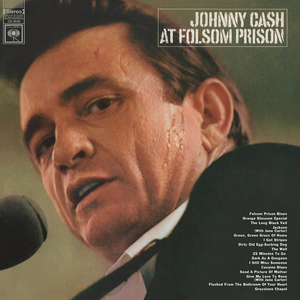
Johnny Cash at Folsom Prison is the first live album by American singer-songwriter Johnny Cash, released on Columbia Records on May 6, 1968. After his 1955 song "Folsom Prison Blues", Cash had been interested in recording a performance at a prison. His idea was put on hold until 1967, when personnel changes at Columbia Records put Bob Johnston in charge of producing Cash's material. Cash had recently controlled his drug abuse problems, and was looking to turn his career around after several years of limited commercial success. Backed by June Carter, Carl Perkins, and the Tennessee Three, Cash performed two shows at Folsom State Prison in California on January 13, 1968. The initial release of the album consists of 15 songs from the first show and two from the second.
"Cold, Cold Heart" is a country music and pop song written and first recorded by Hank Williams. This blues ballad is both a classic of honky-tonk and an entry in the Great American Songbook.

Adam Levy is a jazz guitarist who was a member of Norah Jones's band.

"Don't Know Why" is a song written and composed by Jesse Harris that originally appeared on his 1999 album, Jesse Harris & the Ferdinandos. A cover of the song was the debut single of American singer Norah Jones from her debut studio album, Come Away with Me (2002).

In the World: From Natchez to New York is the solo debut album by the jazz cornetist Olu Dara, released in 1998. Dara also sings and plays guitar on the album.

David Binney is an American alto saxophonist and composer.
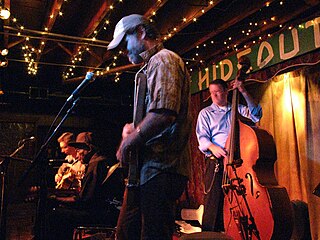
Devil in a Woodpile is a band from Chicago, Illinois. Although they routinely give a fresh sound to 80-year-old songs, their repertoire and instrumentation categorizes them as a country blues or jug band.
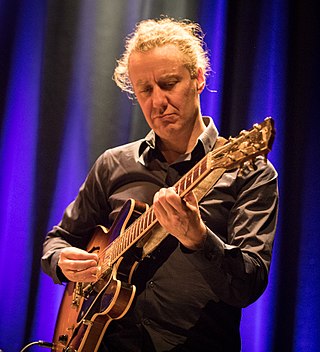
Adam Rogers is an American jazz guitarist.

"Stormy Monday Blues" is a jazz song first recorded in 1942 by Earl Hines and His Orchestra with Billy Eckstine on vocals. The song was a hit, reaching number one in Billboard magazine's "Harlem Hit Parade", and was Hines' only appearance in the charts.

The Fall is the fourth studio album by American singer-songwriter Norah Jones, released on November 11, 2009, by Blue Note Records. The album debuted at number three on the Billboard 200, selling 180,000 copies in its first week. As of August 2012, the album had sold over three million copies worldwide.

High Lonesome is a compilation album by the progressive bluegrass band Country Gentlemen. It's a collection of all recordings for the group's first label, Starday Records.
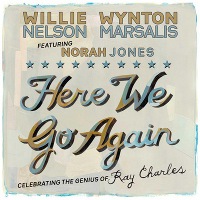
Here We Go Again: Celebrating the Genius of Ray Charles is a live tribute album by country singer Willie Nelson and jazz trumpeter Wynton Marsalis. It was recorded during concerts at the Rose Theater in New York City, on February 9 and 10, 2009. The album received mixed reviews, in which the instrumentation of Marsalis' orchestra was praised by the critics.

"Here We Go Again" is a country music standard written by Don Lanier and Red Steagall that first became notable as a rhythm and blues single by Ray Charles from his 1967 album Ray Charles Invites You to Listen. It was produced by Joe Adams for ABC Records/Tangerine Records. To date, this version of the song has been the biggest commercial success, spending twelve consecutive weeks on the US Billboard Hot 100 chart, peaking at number 15.
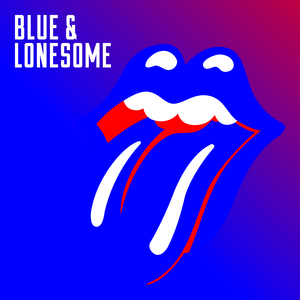
Blue & Lonesome is the 23rd British and 25th American studio album by the English rock band The Rolling Stones released on 2 December 2016. Consisting entirely of blues music, it is the band's first album to feature only cover songs. The album is also their first studio release since 2005's A Bigger Bang, with its eleven-year gap being the longest between two albums from the band. Despite the short running of approximately 43 minutes, the album was released as a double LP. "Just Your Fool", a Buddy Johnson cover was released as the first single from the album on 6 October. The name of the album is from a song which Little Walter wrote, "Blue and Lonesome".
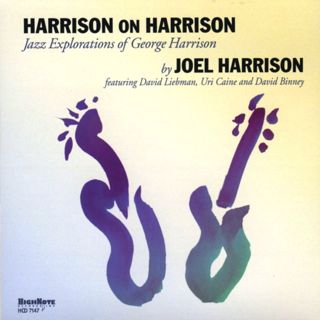
Harrison on Harrison, subtitled Jazz Explorations of George Harrison, is an album by the American jazz guitarist and arranger Joel Harrison released in October 2005. It contains jazz interpretations of ten songs written by the former Beatle George Harrison, who died in November 2001, together with a version of the gospel standard "In My Father's House".

Joel Harrison is an American jazz guitarist, singer, composer, and arranger.



















